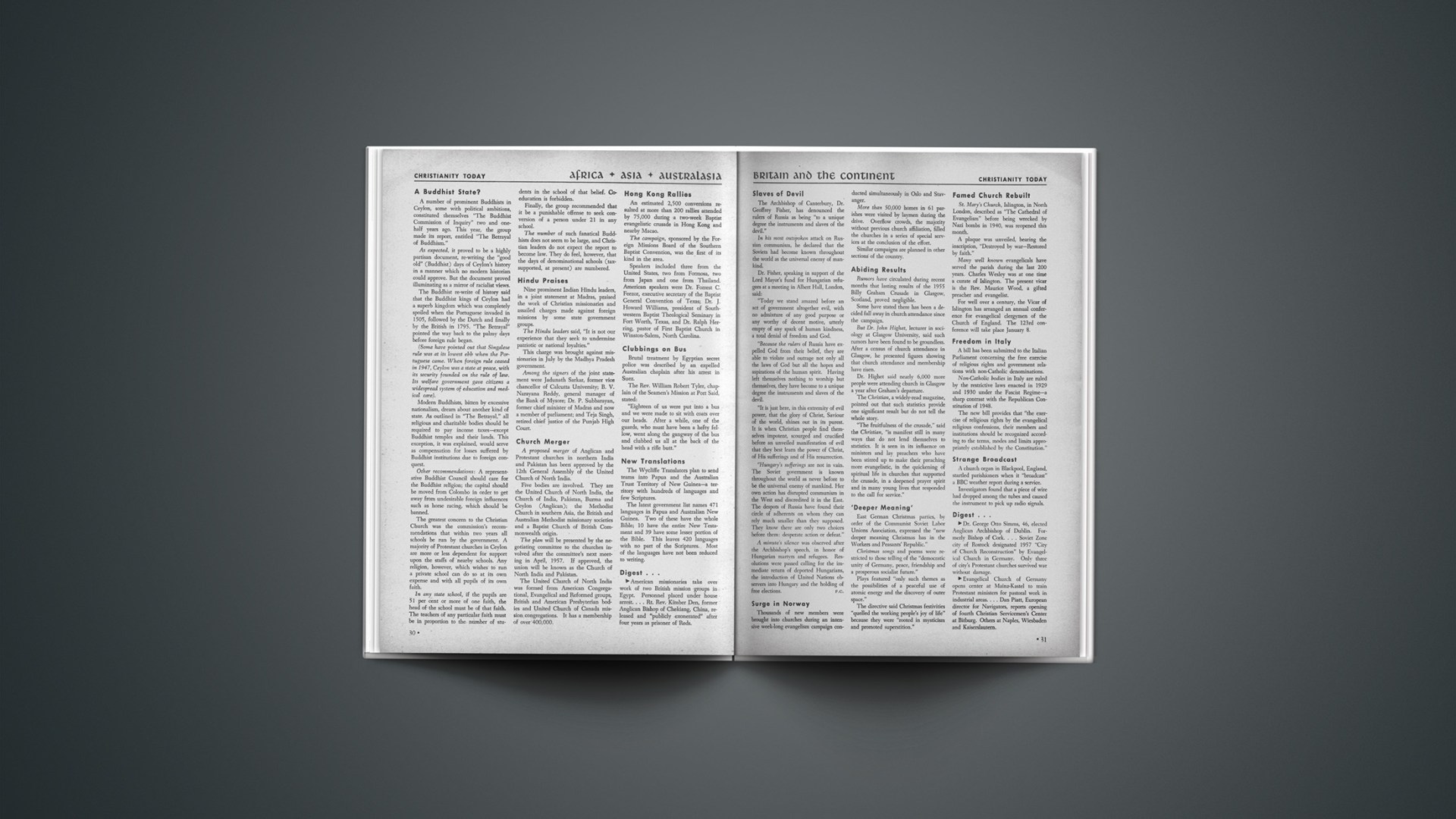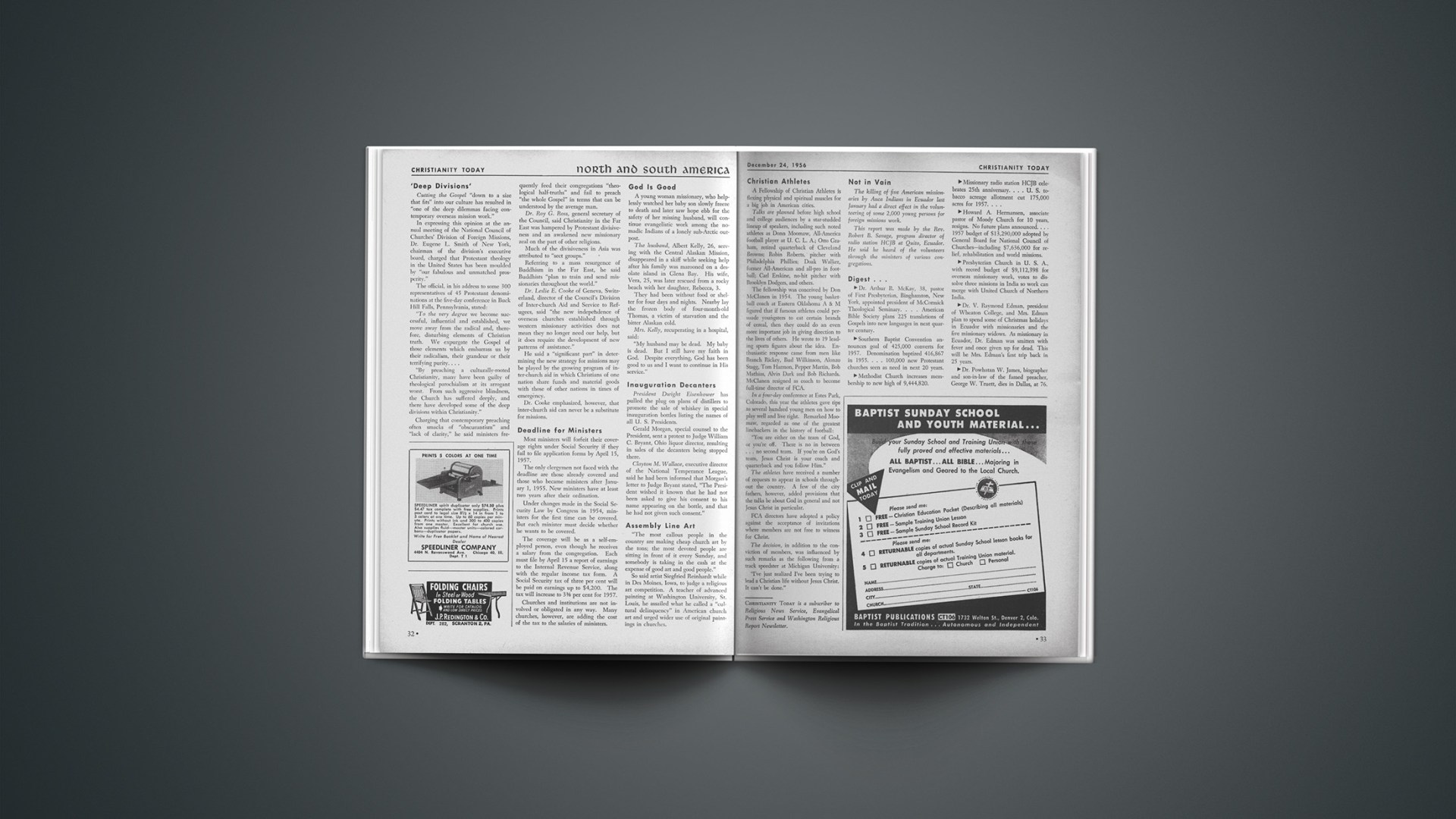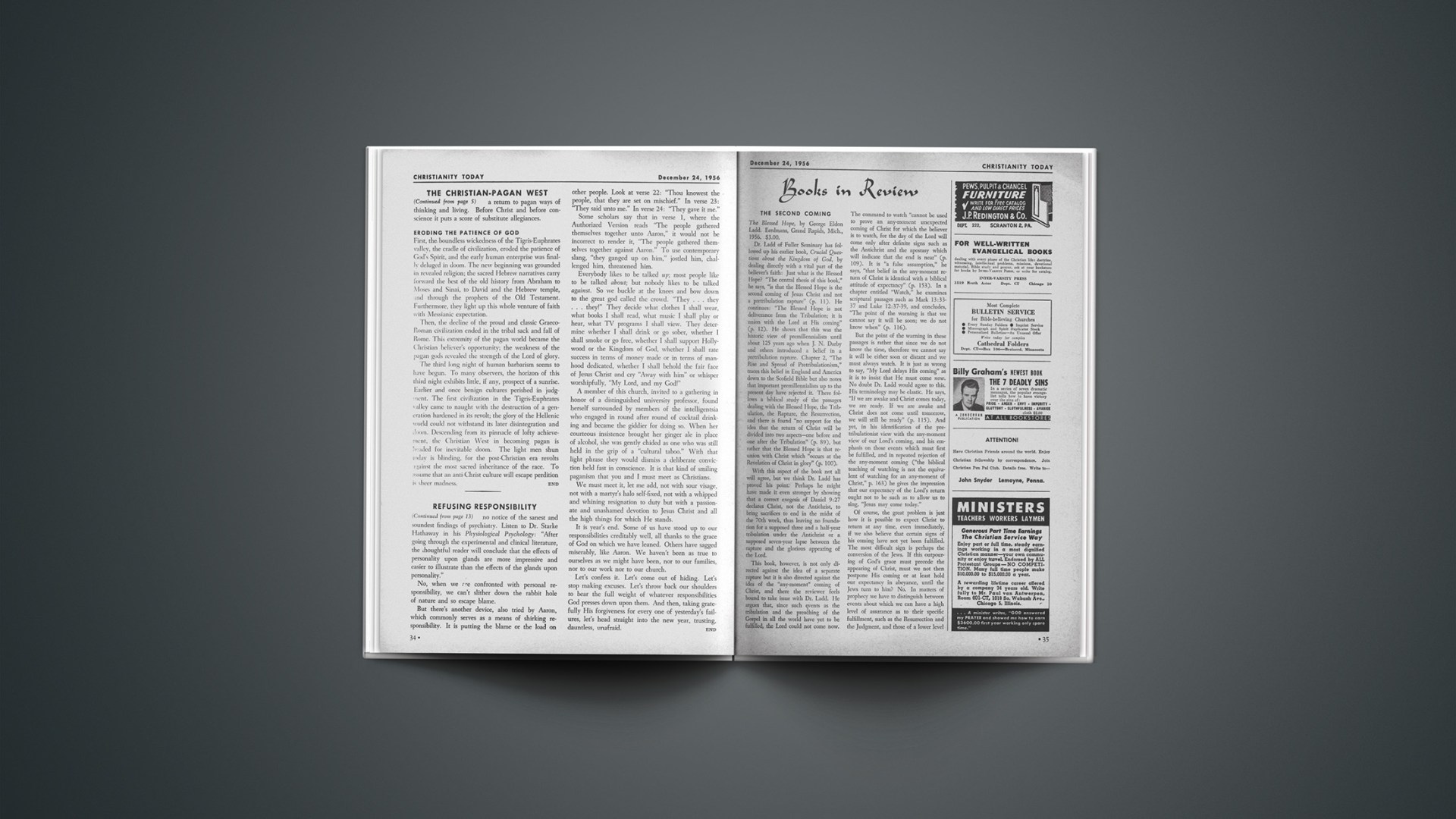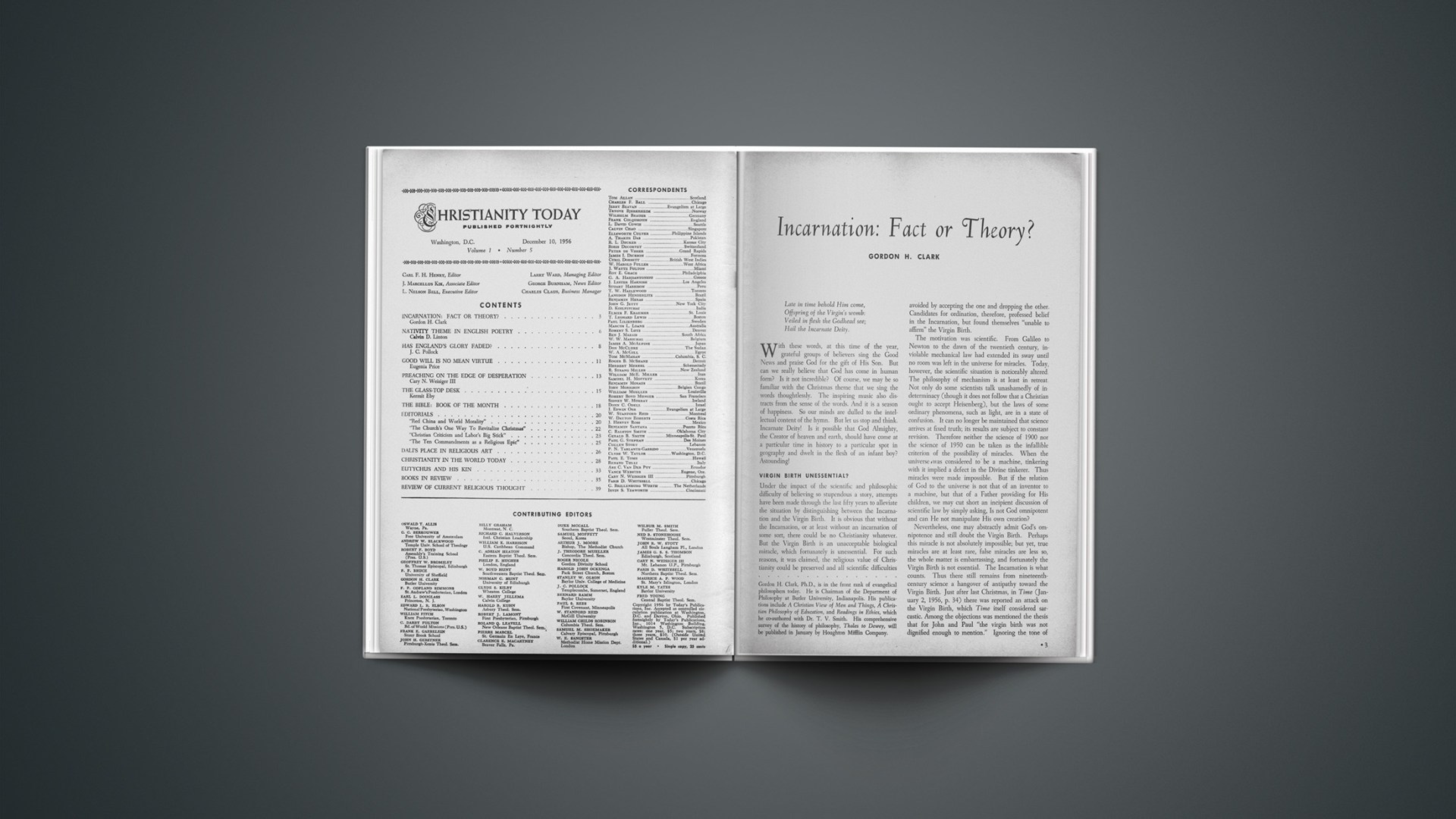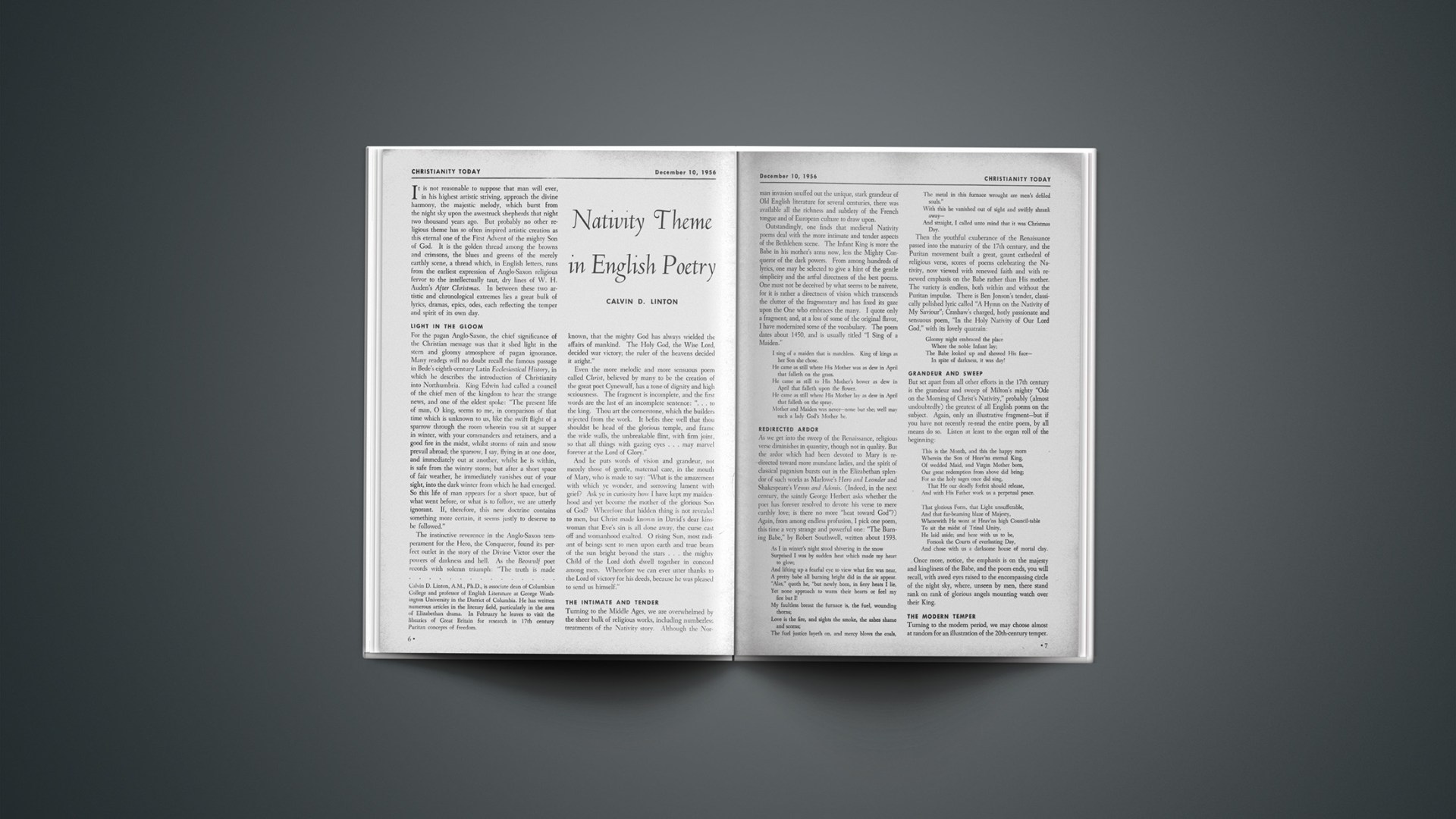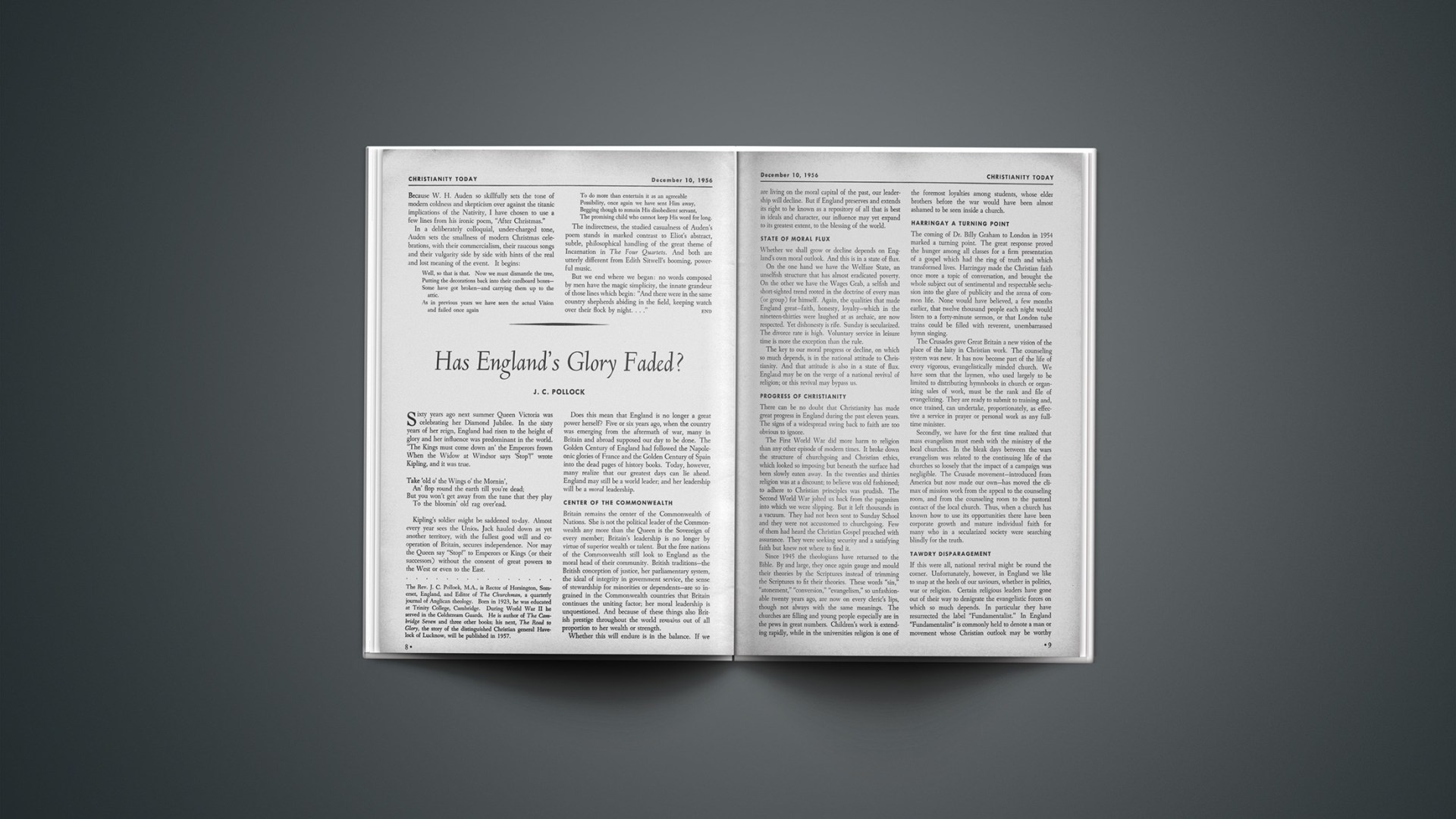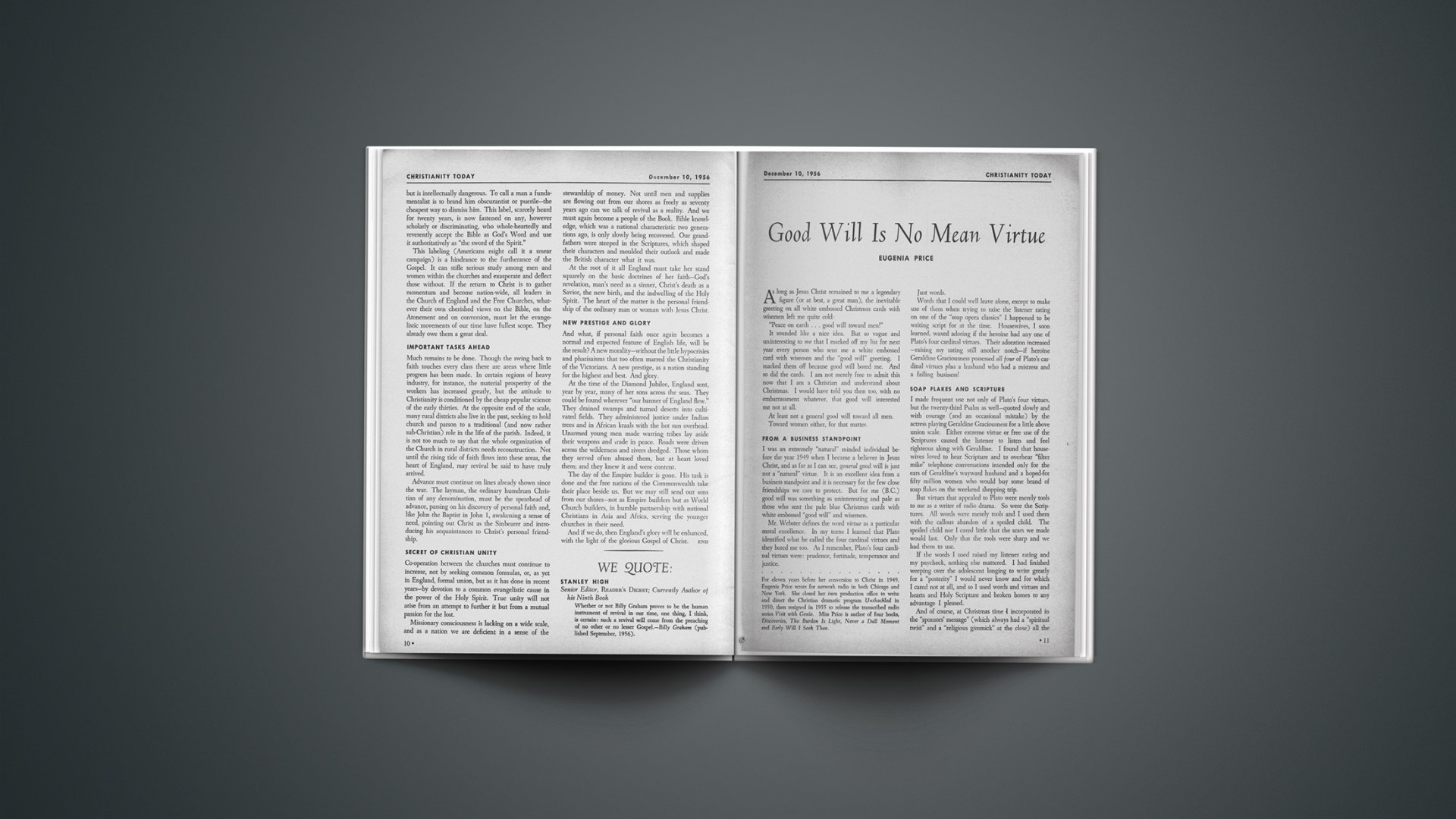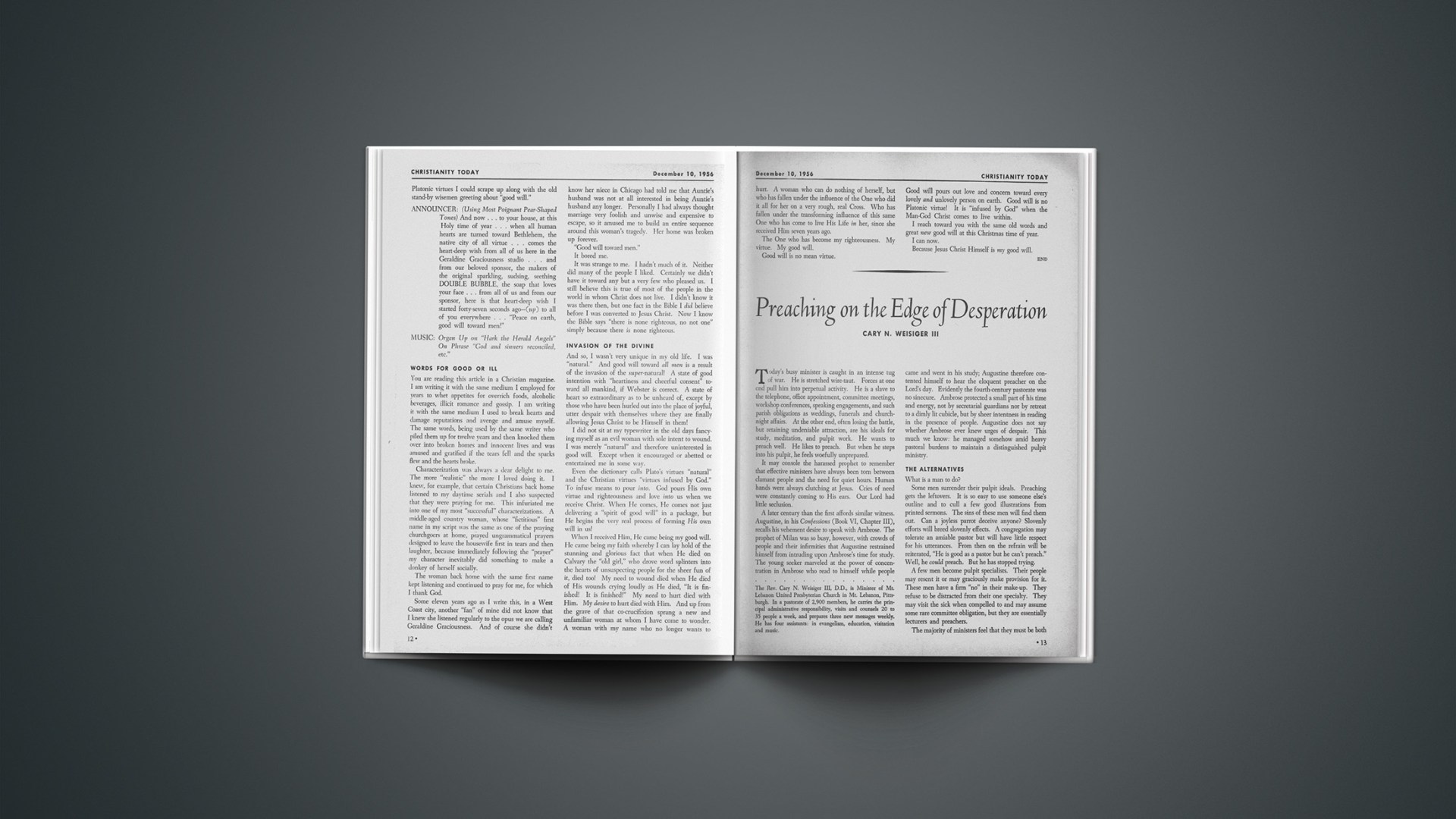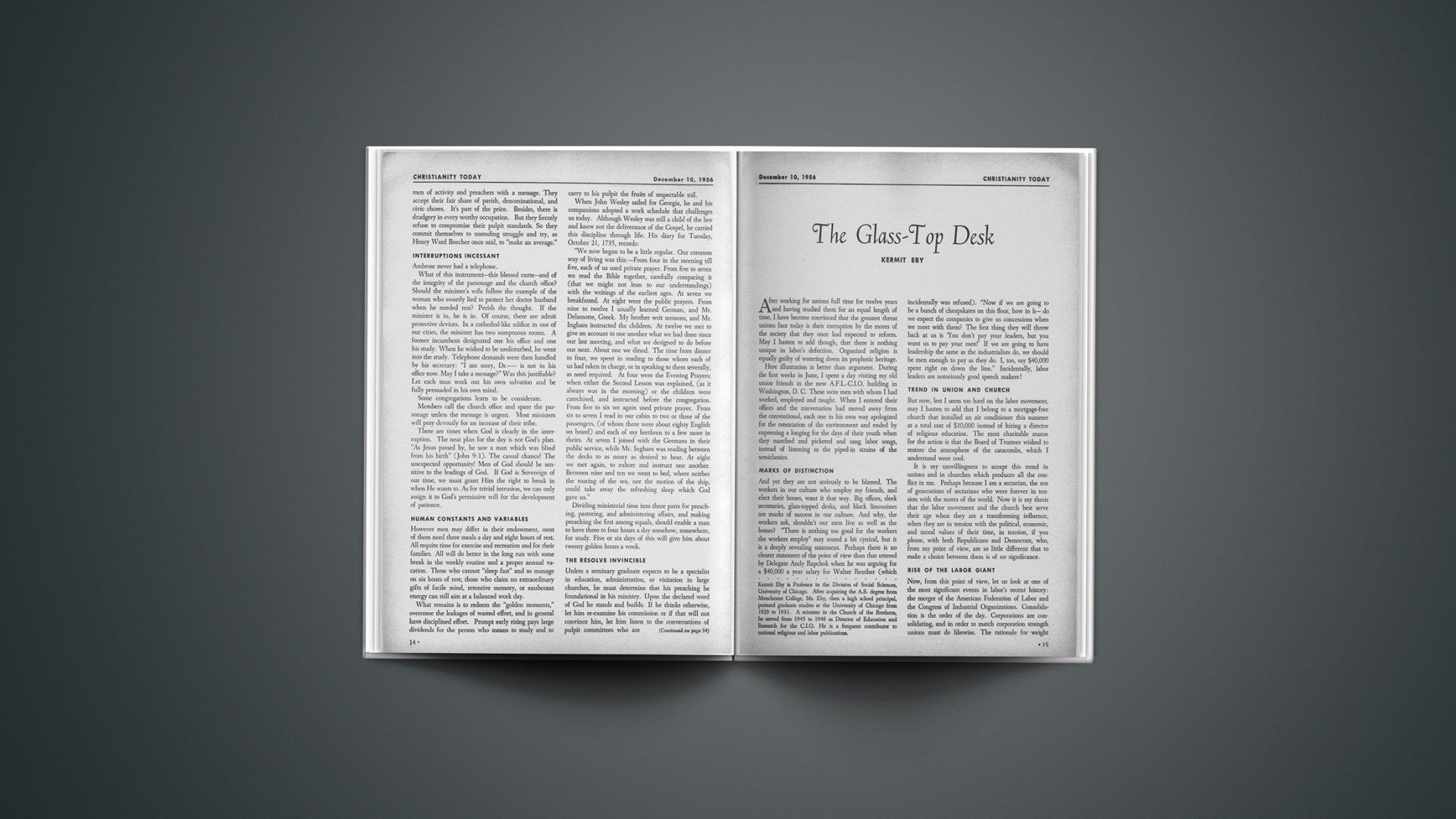Slaves Of Devil
The Archbishop of Canterbury, Dr. Geoffrey Fisher, has denounced the rulers of Russia as being “to a unique degree the instruments and slaves of the devil.”
In his most outspoken attack on Russian communism, he declared that the Soviets had become known throughout the world as the universal enemy of mankind.
Dr. Fisher, speaking in support of the Lord Mayor’s fund for Hungarian refugees at a meeting in Albert Hall, London, said:
“Today we stand amazed before an act of government altogether evil, with no admixture of any good purpose or any worthy of decent motive, utterly empty of any spark of human kindness, a total denial of freedom and God.
“Because the rulers of Russia have expelled God from their belief, they are able to violate and outrage not only all the laws of God but all the hopes and aspirations of the human spirit. Having left themselves nothing to worship but themselves, they have become to a unique degree the instruments and slaves of the devil.
“It is just here, in this extremity of evil power, that the glory of Christ, Saviour of the world, shines out in its purest. It is when Christian people find themselves impotent, scourged and crucified before an unveiled manifestation of evil that they best learn the power of Christ, of His sufferings and of His resurrection.
“Hungary’s sufferings are not in vain. The Soviet government is known throughout the world as never before to be the universal enemy of mankind. Her own action has disrupted communism in the West and discredited it in the East. The despots of Russia have found their circle of adherents on whom they can rely much smaller than they supposed. They know there are only two choices before them: desperate action or defeat.”
A minute’s silence was observed after the Archbishop’s speech, in honor of Hungarian martyrs and refugees. Resolutions were passed calling for the immediate return of deported Hungarians, the introduction of United Nations observers into Hungary and the holding of free elections.
F.C.
Surge In Norway
Thousands of new members were brought into churches during an intensive week-long evangelism campaign conducted simultaneously in Oslo and Stavanger.
More than 50,000 homes in 61 parishes were visited by laymen during the drive. Overflow crowds, the majority without previous church affiliation, filled the churches in a series of special services at the conclusion of the effort.
Similar campaigns are planned in other sections of the country.
Abiding Results
Rumors have circulated during recent months that lasting results of the 1955 Billy Graham Crusade in Glasgow, Scotland, proved negligible.
Some have stated there has been a decided fall away in church attendance since the campaign.
But Dr. John Highet, lecturer in sociology at Glasgow University, said such rumors have been found to be groundless. After a census of church attendance in Glasgow, he presented figures showing that church attendance and membership have risen.
Dr. Highet said nearly 6,000 more people were attending church in Glasgow a year after Graham’s departure.
The Christian, a widely-read magazine, pointed out that such statistics provide one significant result but do not tell the whole story.
“The fruitfulness of the crusade,” said the Christian, “is manifest still in many ways that do not lend themselves to statistics. It is seen in its influence on ministers and lay preachers who have been stirred up to make their preaching more evangelistic, in the quickening of spiritual life in churches that supported the crusade, in a deepened prayer spirit and in many young lives that responded to the call for service.”
‘Deeper Meaning’
East German Christmas parties, by order of the Communist Soviet Labor Unions Association, expressed the “new deeper meaning Christmas has in the Workers and Peasants’ Republic.”
Christmas songs and poems were restricted to those telling of the “democratic unity of Germany, peace, friendship and a prosperous socialist future.”
Plays featured “only such themes as the possibilities of a peaceful use of atomic energy and the discovery of outer space.”
The directive said Christmas festivities “quelled the working people’s joy of life” because they were “rooted in mysticism and promoted superstition.”
Famed Church Rebuilt
St. Mary’s Church, Islington, in North London, described as “The Cathedral of Evangelism” before being wrecked by Nazi bombs in 1940, was reopened this month.
A plaque was unveiled, bearing the inscription, “Destroyed by war—Restored by faith.”
Many well known evangelicals have served the parish during the last 200 years. Charles Wesley was at one time a curate of Islington. The present vicar is the Rev. Maurice Wood, a gifted preacher and evangelist.
For well over a century, the Vicar of Islington has arranged an annual conference for evangelical clergymen of the Church of England. The 123rd conference will take place January 8.
Freedom In Italy
A bill has been submitted to the Italian Parliament concerning the free exercise of religious rights and government relations with non-Catholic denominations.
Non-Catholic bodies in Italy are ruled by the restrictive laws enacted in 1929 and 1930 under the Fascist Regime—a sharp contrast with the Republican Constitution of 1948.
The new bill provides that “the exercise of religious rights by the evangelical religious confessions, their members and institutions should be recognized according to the terms, modes and limits appropriately established by the Constitution.”
Strange Broadcast
A church organ in Blackpool, England, startled parishioners when it “broadcast” a BBC weather report during a service.
Investigators found that a piece of wire had dropped among the tubes and caused the instrument to pick up radio signals.
Digest …
► Dr. George Otto Simms, 46, elected Anglican Archbishop of Dublin. Formerly Bishop of Cork.… Soviet Zone city of Rostock designated 1957 “City of Church Reconstruction” by Evangelical Church in Germany. Only three of city’s Protestant churches survived war without damage.
► Evangelical Church of Germany opens center at Mainz-Kastel to train Protestant ministers for pastoral work in industrial areas.… Dan Piatt, European director for Navigators, reports opening of fourth Christian Servicemen’s Center at Bitburg. Others at Naples, Wiesbaden and Kaiserslautern.

